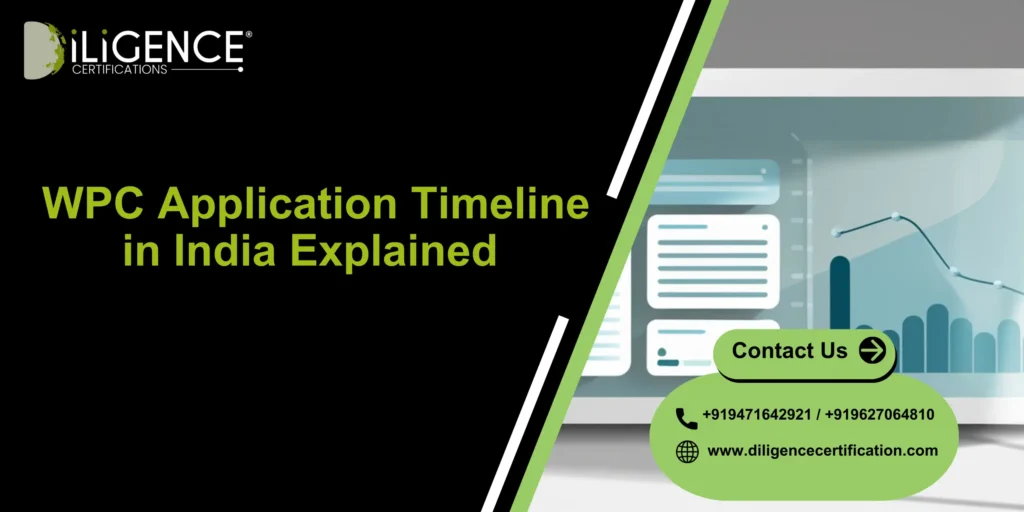- BIS Certification for Polymeric Strip or Geostrip Used as Soil Reinforcement (IS 17372:2020) ensures compliance, safety, and reliability for soil stabilization structures.
- The ISI Mark for IS 17372:2020 confirms that geostrips meet India’s quality and performance standards.
- Diligence Certification provides end-to-end support — from testing to BIS registration and license renewal.
Introduction
In 2024, an infrastructure contractor from Gujarat lost a ₹10 crore government tender for a highway retaining wall project.
The reason? Their Polymeric Strips used for soil reinforcement lacked BIS Certification under IS 17372:2020.
Even though the materials had passed internal testing, the absence of the ISI mark made their bid invalid.
Such rejections are becoming common as government projects now strictly demand ISI-marked soil reinforcement products to comply with the BIS Act, 2016.
BIS Certification for Polymeric Strip or Geostrip – Soil Reinforcement specifies not just safety and performance, but also ensures the product complies with the latest quality standards for civil engineering in India.
Diligence Certification supports manufacturers through each step, including product testing and the application process to obtain and renew the BIS license for IS 17372:2020
What is IS 17372:2020?
Indian Standard IS 17372:2020 is a standard established by the Bureau of Indian Standards (BIS) for Polymeric Strip or Geostrip Used as Soil Reinforcement in civil engineering works.
Polymeric strips are critical to the performance of reinforced soil walls, embankments, slopes, and retaining systems as they provide structural stability, decreased earth pressure, and improved performance over time.
Key Technical Parameters of IS 17372:2020
- Material Composition:
Polymeric strips must be made from high-quality polymers like polyester or polyethylene with stabilizers to resist UV and environmental degradation. - Tensile Strength and Elongation:
The standard defines minimum tensile load, elongation percentage, and creep rupture properties to ensure durability. - Dimensional Tolerances:
Specifies strip width, thickness, and edge uniformity for consistent performance. - Weathering and Durability Tests:
Strips undergo accelerated weathering, temperature, and chemical resistance tests. - Marking and Identification:
Every certified strip must bear the ISI mark, manufacturer’s name, batch number, and license number. - Workmanship:
The product should be free from defects, cracks, or impurities that affect performance in the field.
Why BIS Certification for Polymeric Strip or Geostrip Used as Soil Reinforcement is Essential
1. Legal Compliance under BIS Act, 2016
Manufacturers cannot produce or sell polymeric geostrips in India without a valid BIS license under IS 17372:2020.
Violating this regulation can lead to penalties, confiscation of goods, or plant shutdown.
2. Assurance of Structural Safety
BIS-certified polymeric strips are tested for tensile strength, elongation, and creep rupture, ensuring they can withstand long-term soil and load pressures.
3. Tender Eligibility
All public infrastructure and highway projects now require ISI-marked materials.
Without the ISI mark, your product cannot be used in NHAI, PWD, or Smart City tenders.
4. Brand Trust and Customer Confidence
The ISI mark enhances brand reliability and customer trust.
Distributors and contractors prefer sourcing certified materials to avoid compliance issues.
5. Export Recognition
BIS certification is recognized by foreign buyers as proof of product quality, helping Indian manufacturers access global infrastructure projects.
Understanding the ISI Mark for Polymeric Strip or Geostrip Used as Soil Reinforcement
The ISI mark is more than a label — it’s a symbol of safety, compliance, and quality.
For products certified under IS 17372:2020, the ISI mark guarantees:
- Dimensional and tensile accuracy
- Weather resistance and chemical stability
- Long-term load-bearing capacity
- Traceability through batch code and license number
Every strip bearing the ISI mark can be traced back to its manufacturer, ensuring full accountability in quality assurance.
Benefits of BIS Certification
| Benefit | Description |
| Legal Compliance | Mandatory under the BIS Act, 2016 |
| Tender Access | Required for government and highway projects |
| Quality Assurance | Confirms tensile strength and weather resistance |
| Market Credibility | Builds brand reputation |
| Consumer Safety | Prevents failure in retaining walls and soil systems |
| Export Readiness | Recognized by international buyers |
| Sustainability | Promotes durable infrastructure materials |
Eligibility Criteria for BIS Certification
To apply for BIS Certification under IS 17372:2020, manufacturers must:
- Have a registered business entity (Company/LLP/Proprietorship)
- Maintain a production unit with testing and calibration facilities
- Employ qualified quality control staff
- Maintain records of raw materials and finished goods
- Allow BIS inspection of manufacturing and testing facilities
Step-by-Step BIS Certification Process
1. Identify the Applicable Standard
Confirm that your product matches IS 17372:2020 – Polymeric Strip or Geostrip Used as Soil Reinforcement.
2. Online Application on Manak Portal
Register on the BIS Manak Online Portal and submit company details, machinery list, and product specifications.
3. Product Testing
Send samples to a BIS-recognized laboratory for mechanical and environmental testing.
4. Factory Inspection
BIS officials visit your plant to assess production systems, testing setups, and quality control records.
5. Grant of BIS License
After successful testing and inspection, BIS grants a Certification Mark License (CM/L) to use the ISI mark.
6. Validity and Renewal
- Initial Validity: 2 years
- Renewal: Up to 5 years based on performance and test results

Documents Required
| Category | Documents Required |
| Company Details | Incorporation Certificate, GST, MSME/Udyam Registration |
| Factory Details | Layout Plan, Process Flow Diagram, Machinery List |
| Testing | BIS Lab Test Reports for IS 17372:2020 |
| Quality System | Calibration Certificates, Internal Quality Records |
| Technical Data | Material composition, tensile properties, creep data |
Common Challenges in BIS Certification
- Incomplete test reports or missing calibration data
- Delay in BIS laboratory testing
- Non-compliance during audit due to poor record-keeping
- Lack of awareness about IS 17372:2020 requirements
- Misinterpretation of polymeric strip test parameters
Cost of BIS Certification
| Cost Component | Details |
| Application Fee | Payable via BIS Portal |
| Testing Fee | As per BIS Lab Tariff |
| Inspection Fee | Factory visit by BIS officials |
| License Fee | For ISI Mark usage |
| Renewal Fee | Every 2–5 years |
The total cost depends on plant size, testing needs, and location.
Diligence Certification provides a transparent cost estimate before filing the application.
Why Choose Diligence Certification
Diligence Certification is a leading BIS Certification Consultant in India, specializing in infrastructure and polymer-based materials.
Our Expertise
- End-to-end support — from testing to license approval
- Decade-long experience with IS 17372:2020 and other BIS standards
- Fast documentation and audit coordination
- Nationwide presence across industrial zones
- Reliable renewal and license maintenance services
Conclusion
Obtaining BIS Certification for Polymeric Strip or Geostrip Used as Soil Reinforcement (IS 17372:2020) is not just regulatory — it’s a strategic business move.
The ISI mark validates product quality, ensures legal compliance, and opens the door to public tenders and export markets.
With Diligence Certification as your trusted BIS Certification Consultant, manufacturers can navigate the certification process confidently, from product testing to license renewal — strengthening their brand’s credibility in India’s fast-growing infrastructure industry.
Frequently Asked Questions
what is BIS Certification for the Polymeric Strip IS 17372:2020?
BIS Certification for a polymer strip means the polymeric strip you use for soil reinforcement has been determined to meet BIS quality and safety standards.
Why is BIS Certification required for polymeric strips?
BIS Certification for a polymer strip is mandated under the BIS Act, 2016 to sell or use the polymeric strip in Indian infrastructure projects.
What is IS 17372:2020?
IS 17372:2020 is the Indian Standard for a Polymeric Strip or Geostrip for use as a soil reinforcement material.
Who is responsible for obtaining BIS Certification for IS 17372:2020?
Every manufacturer of a polymeric strip or poly strip for use in civil engineering applications is responsible for obtaining a BIS Certification.
What benefits come from obtaining BIS Certification?
The benefits of obtaining a BIS certification include being legally compliant, being eligible in tenders, having a confident product, and gaining a customer's trust.
How long does BIS Certification last?
A BIS license is valid for 2 years after issuance, with the potential to renew based on quality performance up to an additional 3 years (5 years total).
What tests are required when using the IS 17372:2020?
Tensile strength, elongation, creep rupture, and weathering resistance.
How to apply for BIS Certification?
You will need to apply online through the BIS Manak portal, where you will connect your test reports and provide plant details as part of the online application process.
How much does a BIS Certification cost?
This will vary quite a bit based on the types of tests required, the inspection, and also the plant location. Diligence Certification would provide estimates for you.
How can Diligence Certification help?
Diligence Certification will provide complete support: testing, documentation, and maintaining the BIS License.








 BIS Certification
BIS Certification
 CDSCO
CDSCO
 CPCB
CPCB
 LMPC
LMPC
 WPC Approval
WPC Approval
 Global Approvals
Global Approvals
 TEC
TEC
 ARAI
ARAI
 BEE
BEE
 ISO Certification
ISO Certification
 DGCA Certification
DGCA Certification
 NOC For Steel
NOC For Steel



















 Business Registration
Business Registration















 Legal Services
Legal Services
 Trademark Registration
Trademark Registration
 Copyright Registration
Copyright Registration
 Patent Registration
Patent Registration















































